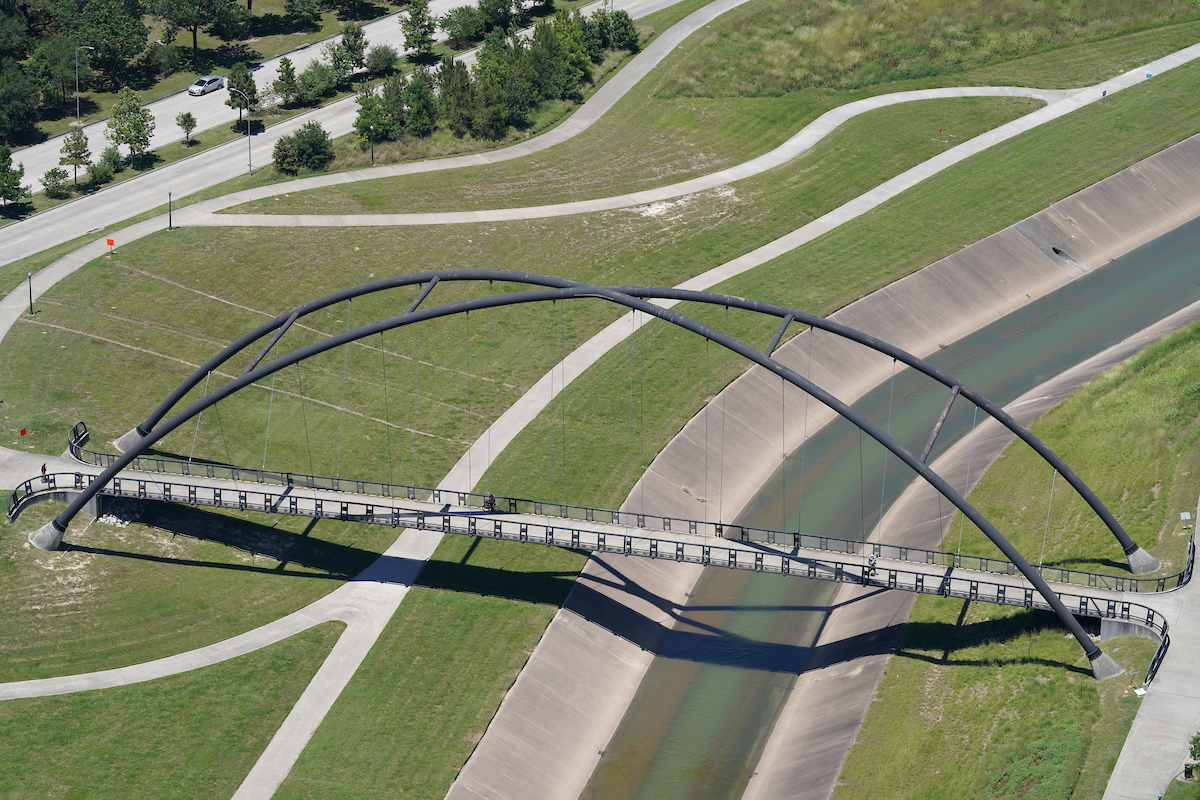Fifth Ward Church of Christ Resource Center
The FWCOC Resource Center is a way for members to use their gifts and talents to serve God and mankind. All resources and activities listed on the site are provided FREE of charge to residents of the greater Houston area. If you are wondering how we can offer these services free, the answer lies at the heart of what we understand as God’s directive for our lives. "As each one has received a special gift, employ it in serving one another as good stewards of the manifold grace of God" (1 Peter 4:10). The FWCOC Ministry In-Brief is our way of providing a profile of Ministries at Work.
The FWCOC Ministry In-Brief: In-Brief Ministry - Frequently Asked Questions (FAQ) to a Christian linkages to the Practical Application of Scripture
Are people scientists by nature, with a knack for understanding STEM (science, technology, engineering, and mathematics) concepts? Should Christians even be concerned about such concepts, that range from architectural marvels to artificial intelligence (AI)? These are fascinating questions to debate, but the simple answer for all Christians should be a resounding yes to both. You don’t have to be the all-knowing go-to person for STEM, but having a rational mind regarding the small things will provide a pathway to understanding. After all, everyone must eat, have a basic understanding of where food comes from, and know how to cook at least something.
 |
“You have some valid points, but I am still not convinced that I am a scientist by nature. I know that I can cook some foods and that chemistry is involved somehow, especially if something burns. Yet you mentioned AI, which I am clueless about, so I just don’t see it.” Cooking food is a great example of a chemical change in which the cooked food has been altered chemically and cannot go back to its original state. You may not understand the chemical equation, but you are doing basic chemistry. Whether you realize it or not, you already know that certain things work together but others don’t. Try eating something that was cooked with the wrong ingredients – replacing sugar with salt or potatoes with cucumbers – or just imagine how it tastes.
As for AI, some say it is starting to take over while others say it isn’t, but if you really understood the major concepts of STEM, it would be easy to see how AI could be disruptive to everyday life, yet it will always lack what God can provide: a way to thrive by doing right through infinite combinations of “forks in the road.”
In this issue, we will review FAQs to a Christian linked to the Practical Application of Scripture to associate God’s word to the STEM integrated AI world.
 |
 |
STEM integrated AI Linkages to God
AI seems to be on a lot of minds these days, with changes in social ecosystems across the world and even disruptions to the way people think. But what is AI? According to Merriam-Webster, AI is “a branch of computer science dealing with the simulation of intelligent behavior in computers; the capability of a machine to imitate intelligent human behavior.” It sounds simple, but if you read it carefully, two words stand out that explain that AI is not human but artificial: “simulation” and “imitate.” AI is composed of computer-generated steps, processes, prompts, logic, and cases that work together to perform an action based on data; it is not a new idea, but it is becoming more prevalent in our daily lives. Regardless of what the automated processes actually are, we should look at AI as a way to be more efficient in everyday life.
Another key aspect of AI is who develops the code (programming) and where the datasets “feed” into AI systems originate: human beings. Below is an easy example to help you appreciate this point—a comparison of images captured with a digital camera with images generated by AI. In this case, “generated” means giving a text prompt to an AI site to tell it to create an image rather than searching the internet for a picture from a digital imagery stock site. The prompts used to generate the AI images, in separate submissions, were “Shiba Inu dog resting” and “Caddo Lake.”
Which do you think are the AI-generated images?
 |
 |
 |
 |
Points to Ponder
Does AI have the ability to create blood or key organs of the body without human intervention using biological samples (cells, tissues, organs) and biochemical reactions that could be interrupted by an infinite number of variables, both natural and man-made?
Can AI self-correct from catastrophic events (hurricanes, severe winter storms, climate change, backup system failures) including the kind of destruction with which God describes the end of the world?
These thoughts should add context to your spiritual toolkit and provide a pathway to helping others who do not understand the true purpose of God’s Word.
Here’s a set of questions that were asked of a member about the Bible and AI
“I don’t consider myself a Christian, but I believe in a higher power and have glanced at the Bible on occasion. I read somewhere that the world will be destroyed by fire. What does this mean? The world is vast, so how can this happen in context? Why should the Bible be the only way to understand what God is trying to tell us about how we should live when it also tells us to expect the world to be gone? We are intelligent beings and can make decisions on our own.”
"We are in a STEM-advanced society, and AI seems to be the way to create our path forward. I know the planet is warming and things are changing, but the world has changed before and has always reverted through natural cycles. I don’t understand how something could happen that would destroy everything. The Bible seems to be based on old times, and they didn’t have what we have now, especially with AI coming along fast. We need newer ideas. Please enlighten me.”
First of all, it is always good to know where the person asking a question is coming from. You mentioned that you read these things somewhere in the Bible, which gives Christians a solid basis to respond. It sounds like you have some respect for the Bible. Christians believe that the Bible is our guide, with prophesies that have been passed on and can be read about in scripture. In addition to these words, archeology and artifacts have confirmed many of the facts stated in the Bible and how the people in the Bible lived at that time.
 |
 |
Yes, we are in an advanced world, especially with AI. Ecclesiastes 1:9 states that “9What has been, it is what will be, And what has been done, it is what will be done. So there is nothing new under the sun.” Past civilizations have been surprisingly advanced, and scientists still debate how various structures were created. Others are searching for ways to live longer, using technology to understand the body. In both instances, it seems they are trying to replicate nature and to replace God.
 |
 |
You also mentioned that the Bible is based on old times and that we need new ideas. True, the Bible is dated, but this does not make it out of date. It remains true and solid; nothing has changed, just as nothing has changed since creation with how humans need one another or inhale oxygen and release carbon dioxide to stay alive. Think of the Bible as timeless, authentic, and right. There are no new basic concepts under the sun. There may be new conveniences, but look at what humans need to survive and thrive: oxygen, water, food, and genuine, worthwhile, interactive relationships for fellowship.
Why do we need new ideas? Christians believe we are made in God’s image and after his likeness. We are different from the animals because God made us to rule. We were made to be creative and to use our minds effectively. Our role is not to question God’s rule or moral standards or to recreate His laws but to use them to build His kingdom. New ideas, free thinking, plurality, and the postmodern generation in which we live often try to reject God’s laws based on feelings—trying to make everything right and nothing we do wrong, regardless of God’s law. This is in total defiance of what God calls righteousness. When we try to replace God’s law—to discredit His law and make our own—we are really listening to the devil. Productive members of society should therefore be careful about new things and understand that we need to uphold God’s law as we create those new things.
Advancing AI and technology can be a good thing for improving our daily lives and continuing to be stewards over what we have been given. Words have meaning, but assembling words using human logic and life experiences will never be sufficient to describe the infinite possibilities and combinations that God encourages Christians to understand.
In essence, everybody is God’s creation, but not everyone is a child of God. Being human means that we are God’s creation, but He allows us to determine whether or not we will be His children based on our responses to His commands and our alignment with scripture. The only way we can be God’s children is if we obey His commands and fall under His charge. So, whether you choose to believe or not determines whether you are His child—or not. We invite anyone to visit our services and events to learn more.
 |
 |
|
Making Connections
How would you apply words, phrases or messages in the scripture referenced below to this set of scenes? Justify your responses. |
| Genesis 1:24 | Luke 3:21 |
| Ecclesiastes 1:9 | Psalm 55:14 |
 |
|
 |
 |
Grace and Blessings,
The In-Brief Ministry
 |
 |
Psalm 55:14"14We who had sweet fellowship together, Walked in the house of God among the commotion."(Source: Bible – New American Standard (NASB))
Ministry: In-Brief.
Coordinator(s) and/or Volunteer(s): Gary Smith, Karl Spencer.
Ministry In-Brief Administrator and Volunteer(s): Karl Spencer.
Location: Fifth Ward Church of Christ Resource Center.
Archived Articles: In-Brief Archive (PDF Format)
